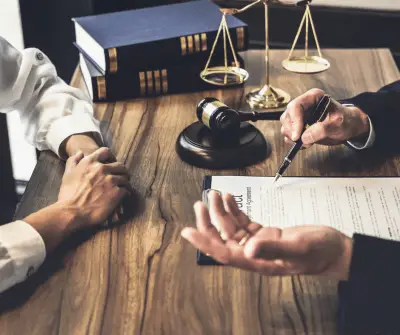What Does Expunge Mean?
There are many confusing terms when it comes to the world of law. One of these confusing terms is expungement. What does it mean to expunge someone’s records?
What does expunge mean? The strictest definition of expunging is to erase, obliterate, or remove something from a record. In most cases, the information is removed from public records and placed into private records that are not available to the general public.
This can be helpful for those who have been convicted of a crime but later prove themselves as pro-social members of society. It’s an incentive for them to continue their good behavior.
Many states have different laws regarding expunging criminal records. However, the majority of them allow for some type of expungement after the sentence has been completed and a probation term has passed without incident. It is important to note that certain crimes will not be eligible for an expungement of criminal records.

The Expungement Process
Who needs their records expunged? Expungement is often used by law enforcement agencies to clear people’s records after they turn 18 years old.
This means that they are no longer under the control of the juvenile court system. Probation or other sentences may also be terminated, so long as there have not been any violations during the probationary period.
How To Apply for Expungement?
A person will apply for an expungement of their criminal record by filling out the appropriate forms and filing them with the juvenile justice department or law enforcement agency that is most involved with their case.
The court will then schedule a hearing to review the application and make a decision about whether there is sufficient reason for expunging the records in question.
If approved, most agencies will provide a copy of the order to all other agencies that have copies of their records so they can update them.
If there are no orders in place to prevent it, the agency can then destroy or remove any records related to this case from their files.
Reasons for Expunging Records
Why should someone get their criminal record? There are many reasons why people may apply to have their criminal records expunged.
Examples include:
- Having a juvenile record expunged can be extremely valuable for young adults who want to enter the military, get a job, or attend college. In some cases, insurers will offer discounts on insurance premiums when someone proves how long they have been crime-free.
- In addition to being able to present a clean criminal record, many states have different requirements that must be met before they will grant an expungement of criminal records. These can include: Fulfilling all sentencing obligations or having no new arrests or convictions for several years.

Expunging Criminal Records in the Different States
How does it differ from state to state? Even though there are many similar terms and processes for expunging criminal records, each state has its own rules and requirements.
In some cases, a person must have been crime-free for a certain number of years before they will consider expunging criminal records. Some states offer options for sealing or otherwise concealing the files, rather than destroying them.
Qualifications
Requirements for applying can also be more strict. For example, in some states, you must give advance notice to all involved parties before they will grant an expungement of criminal records for juvenile offenses. Other states have no such requirement.
It Is Not Immediate
In general, someone who has been convicted of a crime in another state will not automatically be eligible for an expungement when they move to another state.
However, some states have procedures in place that allow them to transfer the relevant files from the other jurisdiction and go through the same process.
Expungement Takes Time
How long does it take to expunge a record? There is no set standard time frame for expunging records. The first step should be relatively easy. However, the actual processing of all of the paperwork can take several months or even years.
This depends on how quickly you can negotiate with each agency and how many different agencies you need to work with.
Complications
If your situation is complicated the process is likely to take longer than one might expect. For example, if you have a juvenile record, multiple offenses in multiple jurisdictions, or prior arrests that did not end up in convictions. There are also situations where records cannot be expunged or it is very difficult to do so.
These can include:
- Having a federal criminal record that includes terrorism-related offenses.
- Having been convicted of certain sexual crimes involving children.
- Being currently incarcerated for another offense.
In addition, in some states, you will not be able to file your application until a certain time has passed after completing all of your sentencing requirements (fines, probation).
Who Has Access To Expunged Records?
Are the records still available in some cases? People who have had their criminal records expunged can generally deny having a criminal record in most circumstances unless there is another reason why they cannot do so.
For example, they are applying for a government job and they require a background check. Most private companies and institutions will not have access to the expunged records.
Exceptions
- Federal law enforcement agencies.
- People who request their criminal record (i.e., anyone who has been arrested).
- The reporting agency, which is the agency that reported or filed the charges, to begin with.
How long will they remain unavailable? There is no set time frame for how long records may be inaccessible to the public at large. The expunged records are not destroyed, but simply sealed or otherwise marked in such a way that agencies and individuals must make an extra effort to access them.
In these cases, you can deny having a criminal record even if it has been expunged because you can honestly claim to not know about the record.
Fortunately, most people who currently have a clean criminal record, will not have this happen since they have no record. However, private employers and agencies can still ask you if you have a criminal record. They cannot be held liable if you lie.
They will not generally have access to your actual records unless it is part of an investigation or for some other legitimate purpose (pre-employment background check).

The Benefits Of An Expungement
What are the benefits of expunging your record? Even though there are some limitations to what will show up on criminal records after they have been expunged, there are still many other reasons why people try to remove their criminal history from public view.
They include:
- The ability to deny having a criminal record if anyone asks.
- Being able to deny having a criminal record when applying for government jobs that require background checks, which these days are almost all of them.
- Lower insurance rates and higher premium discounts.
- Getting into the military or obtaining an occupational license in certain fields (teaching, law enforcement, etc.).
- Being able to legally purchase a firearm.
- The ability to obtain a state license for certain professions (e.g., cosmetologists, real estate agents).
- The right to run for public office or hold political office in some states.
Potential Risks Of An Expungement
What are the potential risks of expunging your record? There are no guarantees that your criminal record will be expunged. It may take longer than you would expect. Even if the law in your state allows for an automatic expungement after a certain amount of time has passed.
Difficulties
- If you have multiple offenses or any type of violent charge, the expungement process will likely be more difficult.
- Some people also find that they are denied an expungement even if their record meets all of the requirements in their state. This is especially common with older offenses, especially felonies.
- The other potential risk you run when trying to have your criminal records expunged is having them show up on a private criminal background check.
When a record is expunged, it is removed from the public database where anyone can view it. However, some other databases might still have your record in them. They may be accessible to other parties – even if you have had your records expunged!
This can happen as a result of several different circumstances, including:
- The court or police department lost the records.
- They were never properly filed in the first place.
- Someone submitted a FOIA request to have them released.
s a result, they can automatically release these records to anyone who makes a request. (Legally, they are only supposed to release them to other government agencies). Unfortunately, there is no way of knowing if this has happened with your record.
In Conclusion
The expungement procedure may appear simple on the surface, but in practice, it is often difficult. If you have a criminal record that you would want to have erased from public view, contact the police department where the arrest occurred or an attorney with expertise handling these cases. This way, you can ensure that your request for expunging is submitted correctly.








